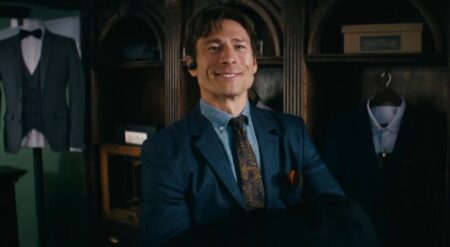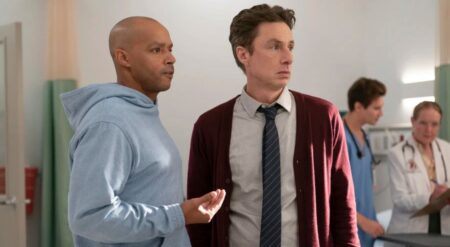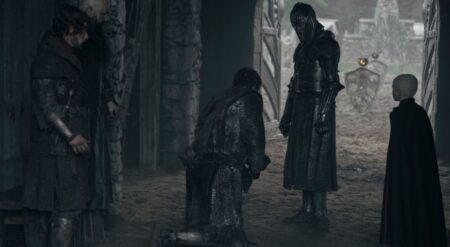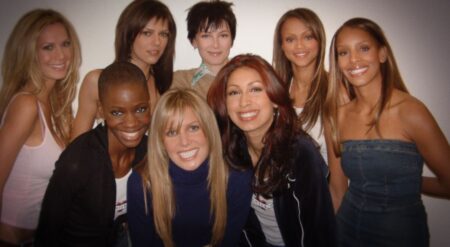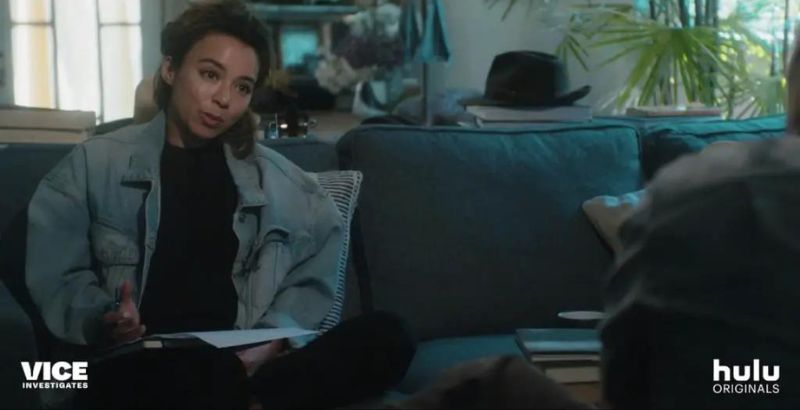
Content Warning: This episode of Vice Investigates and the review of it contains talk about sexual harassment
The Hulu Original VICE Investigates returns with its fifth episode of the season, “Disgrace,” which sets to tackle the messy fallout and conversation around the #MeToo movement. Previously, the documentary serious looked into the K-Pop industry. This episode follows VICE Correspondent Isobel Yeung as she speaks with those who have been accused of sexual harassment and attempts to find out just what happens to the communities and people affected by the allegations.
Yeung starts “Disgrace” by speaking with Charlie Hallowell, former founder and chef of Boot & Shoe Service in California, who stands accused of sexually harassing employees. After Yeung reads out a long list of things he said and did to his employees, she asks him why he was such a creep. Seventeen women accused Hallowell “of harassment and creating an uncomfortable, sexualized atmosphere for employees.” While Hallowell swears he wasn’t aware of the damage he was causing, the cases he has settled and the multiple employees who have come forward and shared their stories about how they asked for his behavior to change say otherwise.
In addition to speaking with Hallowell, Yeung also speaks with some of his current employees. By highlighting their feelings it is easy to see just how complicated the matter is. One woman, who was hired during the scandal, explains how she doesn’t know if she is helping or hurting the movement by working for Hallowell. At the end of the day, it asks an interesting question as to whether you can really hold employees who stay accountable.
Hallowell still owns restaurants. Like many men called out by the #MeToo movement, he has come back but as activist and the creator of the movement Tarana Burke told Yeung, it is not necessarily that they can’t come back, it is how they come back. Burke stresses that accusers must do something about the harm they have caused.
In addition to Hallowell, Yeung spoke with 13 Reasons Why author Jay Asher. Asher was accused of sexual harassment and was expelled from the Society of Children’s Book Writers and Illustrators after accusers said he had harassed and lured women during their conferences. However, unlike Hallowell, Asher retains his innocence, seeing himself as a casualty of circumstances.
Asher’s situation is murky but Hallowell’s isn’t. Hallowell outright admitted to what he did and his apology to the community was also a way to announce his return. His apology explained how he was restructuring his business so he would now be answering to a female business partner. His restaurant would also feature a dunk tank for anyone still upset by his actions. But all of it was on his terms and felt at best gimmicky and at worst, crass. Hallowell has been working with therapists and meditation coaches in an attempt to better himself but as Yeung pointed out while listening in during his session, it all seems to be centered around him and not the actual victims. However, Hallowell doesn’t think it is fair if people don’t want him to be a better person.
But as Burke points out, it is rare to see people ask the victims what is best for them. While many victims want nothing to do with those who have harmed them, perpetrators still have a responsibility to understand and be respectful of those they hurt. However, for many victims, it is not that simple. For Karina Vlastnik, one of Hallowell’s victims and a former waitress at his restaurant, the attention has only given Hallowell more power.
Vlastnik spoke during “Disgrace” about how her experience being sexually harassed destroyed her relationships and has made even the simplest things difficult. Going outside comes with extreme anxiety over everything from potentially running into him or people associated with him. Vlastnik also talked about how everything Hallowell is doing isn’t enough and what he needs to do to be redeemed isn’t her problem.
The biggest issue with “Disgrace” is its focus on the perpetrators over the victims. Hallowell might think he is reformed and deserves a chance in the restaurant industry again. After a food critic wrote an emotional column stating she would not review his food or eat at his restaurant, Hallowell saw business decline. Because of this, he has had to cover expenses out of his own pocket and will potentially have to close one of his two restaurants. Hallowell’s reaction was understandably upset but he also didn’t seem to understand the point of the food critic either. A few months off and some therapy does not change the irretrievable harm done to the Oakland community and particularly Hallowell’s female employees.
The point of “Disgrace” is clearly to try to start a conversation about how the accused can enter back into society but until the accused truly understand the hurt they caused, they do not deserve to be anywhere near the positions of power they once were in. The only time the episode is able to garner any answers is when Yeung speaks to Burke, but the majority of the episode is spent with Hallowell and his specific point of view.
VICE Investigates most recent episode, “Disgrace,” is streaming now on Hulu.
VICE Investigates Season 1, Episode 5 - Disgrace
-
VICE Investigates Season 1, Episode 5 - Disgrace - 6/106/10
TL;DR
The point of “Disgrace” is clearly to try to start a conversation about how the accused can enter back into society but until the accused truly understand the hurt they caused, they do not deserve to be anywhere near the positions of power they once were in.

